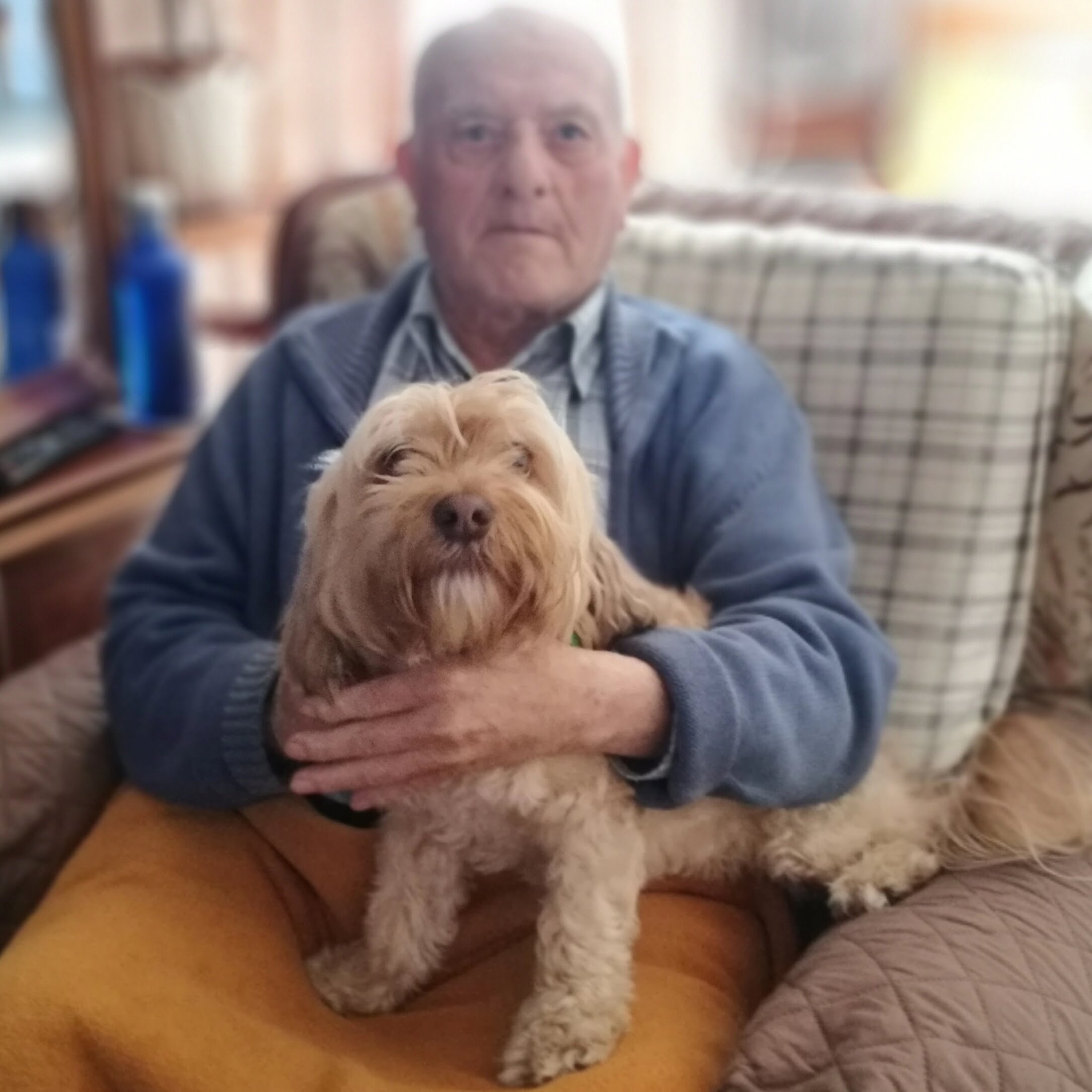Sabemos que un perro nos aporta numerosos beneficios a nivel físico y emocional, sin embargo, cuando se trata de personas mayores, los beneficios se multiplican.
Perros y ancianos
Nosotros tenemos una muy buena experiencia y ejemplo con Uma.
Dos veces a la semana solemos visitar a mis tíos, dos ancianos de más de 85 años sin hijos, y el día que vamos sin Uma, ya preguntan por ella y que por qué no la hemos llevado.
Y es que ya es una condición que vayamos siempre con ella y a Uma le encanta: lo primero que hacen es darle su loncha de jamón y durante las horas que estamos allí, no faltan las caricias y los lanzamientos de pelota.

Solo con ver cómo les cambia la cara, no hay día que no vayamos sin la perra.
La ilusión por verla, lo relajante que es para ellos acariciarla (porque otra cosa no, pero Uma de las caricias nunca se cansa) y con la tontería de lanzarle la pelota ya hace que se muevan más, lo cual agradecemos para evitar que se atrofien y muevan algo más sus articulaciones.
Así que, no es difícil explicar las razones por las que cada vez son más comunes los perros de terapia con personas mayores:
Promueven la actividad física
Los ancianos que viven solos se ven obligados a salir a andar para que su perro haga sus necesidades, así que con esa excusa la persona camina y en casa, también se ve obligada a jugar, con lo que realiza más movimientos.
Con ello, el anciano está realizando una actividad física que sin perro a lo mejor no haría, previniendo así problemas de corazón, la regulación de la presión arterial, la mejora los problemas de diabetes, el fortalecimiento de las articulaciones, etc.
Promueven la salud emocional
No es una sorpresa que muchos ancianos se encuentren y/o se sientan solos.
La compañía de un perro es muy beneficiosa para su salud emocional ya que ayuda a reducir el estrés, a reducir los problemas causados por la depresión, a aumentar la socialización y la participación en más actividades, etc., lo que causa que en conjunto el anciano esté de mejor humor.
Promueven la salud mental
Una persona mayor que normalmente viva sola y no tenga más actividad que ver la televisión, con el perro puede ir más allá, ya que puede interactuar con él hablándole, enseñándole trucos, creando una rutina de horarios para darle de comer, pasear o llevarlo al veterinario.

Perros de terapia en centros para mayores
Si un solo perro puede cambiar la vida de una persona mayor, es normal que los centros y residencias para mayores, entre muchas actividades, incluyan las terapias con perros.
Desde luego Uma sería una candidata perfecta porque no hay nada que le guste más que estar con gente que le haga caso, juegue con ella y le acaricie.
¡No se agobia nunca!
Y no hay una raza concreta de perro que ayude como perro de terapia, cualquier perro, independientemente de la raza, si es un perro equilibrado y sociable puede ser un candidato perfecto para repartir amor.
Otra cosa, es un perro con el que pueda convivir una persona mayor. En estos casos, las razas pequeñas y más «perezosas» son las ideales: razas o cruces de razas como el carlino, el bulldog francés, caniche, etc., son perfectas para gente mayor que desee compartir su vida con un perro.
Afortunadamente, es cada vez más común ver residencias de ancianos, centros de día para mayores o centros de estancia temporal, que entre todas las actividades que ofrecen de carácter asistencial, lúdico o terapéutico, incluyan la terapia con perros.
Este es un buen ejemplo, llevado a cabo en el centro de día Allegra, donde la pequeña Lila alegraba a sus mayores con sus trucos:
Qué dicen las investigaciones sobre perros y ancianos
Son cada vez más comunes los estudios realizados por diferentes científicos en los que se ha demostrado cómo el cuerpo humano segrega diferentes hormonas cuando están en contacto con perros.
Estas hormonas, serotonina, prolactina y oxitocina, afectan al estado de ánimo, reduciendo, como he comentado con anterioridad, el estrés, lo que provoca además de todos los beneficios que he comentado con anterioridad, la desaceleración de la pérdida de memoria.
Como ves, todo son beneficios cuando se trata de la relación perros y humanos, y nuestros mayores si algo se merecen es poder relacionarse con un animal tan agradecido, leal y cariñoso como es el perro.

